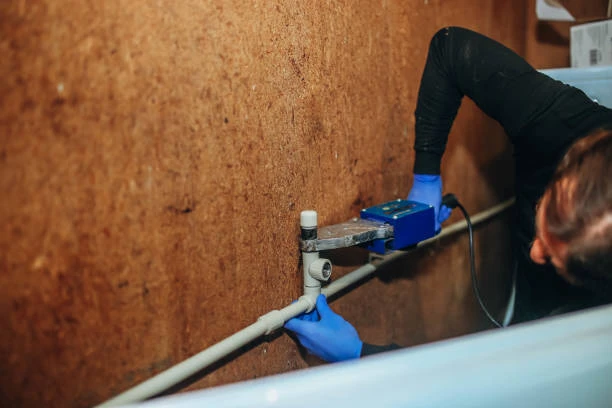Introduction
The safety of PVC fittings used in water systems has recently come under scrutiny following a controversial report. The report raised concerns about the potential risks of using PVC (polyvinyl chloride) fittings in drinking water systems. This claim, however, has drawn strong opposition from pipe manufacturers and industry experts who assert that PVC fitting meet rigorous safety standards and are reliable for water distribution.
This article explores the claims made in the report, the industry’s response, and why PVC fitting remain a trusted choice in water systems worldwide.
Understanding PVC Fittings
What Are PVC Fittings?
PVC fitting are essential components made from polyvinyl chloride, used to connect, redirect, or control water flow in piping systems. These fittings are lightweight, durable, and widely used in residential, commercial, and industrial water systems.
Types of PVC Fittings
- Couplings: Connect two pipes in a straight line.
- Elbows: Change the direction of the pipeline.
- Tees: Split or combine water flow.
- Valves: Control water flow within the system.
Applications of PVC Fittings
PVC fitting are used in drinking water distribution, wastewater systems, and agricultural irrigation due to their versatility and reliability.
The Controversial Report
What Did the Report Claim?
The report argued that PVC fitting could potentially leach harmful chemicals into drinking water, posing health risks. The researchers suggested that some manufacturing processes might leave trace amounts of substances that could degrade over time.
Publication and Reaction
The findings were published by an independent research group, prompting concerns among consumers and regulatory bodies. However, the report lacked large-scale, peer-reviewed validation, which led to skepticism from industry experts.
Manufacturers’ Response
Highlighting Industry Standards
Pipe manufacturers emphasize that PVC fitting undergo rigorous testing to meet global safety standards. These include:
- NSF/ANSI 61 Certification: Ensures materials do not leach harmful substances into drinking water.
- ASTM Standards: Guarantee physical performance and durability.
Scientific Evidence of Safety
Research consistently shows that PVC fitting, when manufactured correctly, do not pose health risks. Studies highlight that PVC fittings are chemically stable and resistant to leaching under normal conditions.
Criticism of Report Methodology
Manufacturers have pointed out flaws in the report’s methodology, such as:
- Use of extreme testing conditions unrepresentative of real-world scenarios.
- Lack of controlled studies verifying the claims.
Why PVC Fittings Are Safe for Drinking Water
Decades of Proven Use
PVC fitting have been used in water systems for over 50 years without widespread safety concerns. Their long history of safe use reinforces their reliability.
Non-Toxic Material Composition
Modern PVC fitting are free from harmful additives such as lead and meet strict safety criteria for potable water systems.
Resistance to Corrosion and Contaminants
PVC fitting resist corrosion and do not release contaminants into water, unlike some metal alternatives that may corrode over time.
Advantages of PVC Fittings in Water Systems
Durability and Longevity
PVC fitting are designed to withstand high pressure, temperature variations, and chemical exposure, ensuring a lifespan of up to 50 years.
Cost-Effectiveness
Their affordability makes them an economical choice for large-scale water projects without compromising quality.
Ease of Installation
Lightweight and easy to handle, PVC fitting simplify installation and reduce labor costs.
Eco-Friendliness
PVC is recyclable, and its production requires less energy compared to metal alternatives, reducing its carbon footprint.
Debunking Common Myths About PVC Fittings
Myth 1: PVC Leaches Chemicals Into Water
Scientific studies have shown that PVC fitting do not leach harmful substances when used under standard conditions.
Myth 2: PVC Fittings Are Not Durable
PVC fitting are engineered to handle high-pressure systems and last for decades without degradation.
Myth 3: PVC Is Harmful to the Environment
Recycling initiatives and sustainable manufacturing practices make PVC a more environmentally friendly option than perceived.
Ensuring the Safety of PVC Fittings
Global Safety Standards
PVC fitting used in drinking water systems must comply with strict certifications, including:
- ISO Standards: For international compliance.
- NSF/ANSI 61 Certification: For potable water safety.
Regular Quality Control
Manufacturers conduct regular quality checks to ensure products meet safety and performance benchmarks.
Education and Awareness
Educating consumers about the safety and benefits of PVC fitting can address misconceptions and build trust.
Future of PVC Fittings in Water Systems
Technological Advancements
Ongoing innovations in material science are improving the performance and safety of PVC fitting.
Increased Regulatory Oversight
As regulations become stricter, manufacturers are continually enhancing product standards to ensure compliance.
Sustainability Initiatives
Efforts to recycle and reduce waste in PVC production are contributing to the material’s sustainability.

Conclusion
PVC fitting remain a cornerstone of modern water systems despite the claims made in the controversial report. Pipe manufacturers and scientific research continue to affirm their safety and reliability. The industry’s commitment to adhering to global standards and innovating sustainable solutions ensures that PVC fittings will remain a trusted choice for drinking water systems.
For consumers, understanding the proven safety and benefits of PVC fitting helps make informed decisions when selecting materials for water infrastructure.
Frequently Asked Questions (FAQs)
1. Are PVC fitting safe for drinking water?
Yes, PVC fittings meet stringent global safety standards and do not leach harmful chemicals into drinking water under normal usage conditions.
2. What certifications do PVC fittings need?
They must comply with certifications like NSF/ANSI 61 and ASTM standards to ensure safety and performance.
3. Do PVC fittings have a long lifespan?
Yes, they are highly durable and can last up to 50 years with proper installation and maintenance.
4. Are PVC fittings cost-effective?
PVC fittings are affordable, making them an economical option for large-scale water projects.
5. Can PVC fittings be recycled?
Yes, PVC is recyclable, and many manufacturers are adopting sustainable practices to minimize environmental impact.